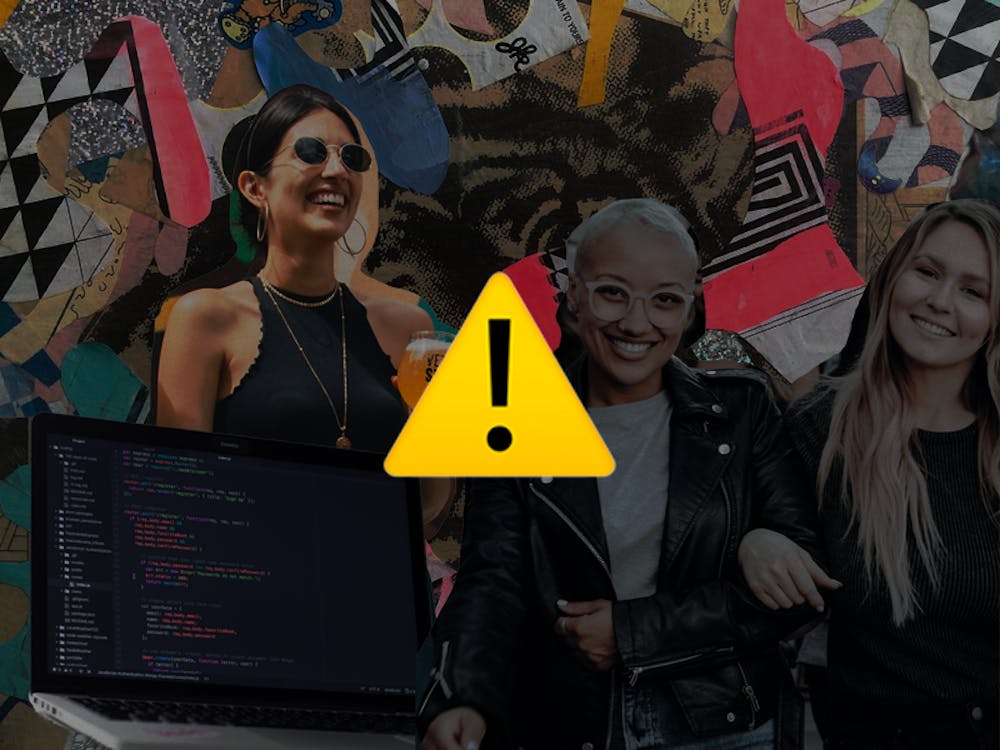“Time to BeReal! You have two minutes left to capture a BeReal and see what your friends are up to!”
Taking Gen–Z by storm, BeReal is a new photo-sharing app that prompts users to post a photo of whatever they’re doing once a day. Once the notification hits, users have only two minutes to take a photo with their front and back cameras.
The catch? Notifications are completely random, and there are no filters available.
Want to post later? Your friends can see how many times you’ve taken your BeReal and how many hours later that you’ve posted.
What happens after you post your BeReal? You can see what your friends have posted on the “My Friends” tab and what users worldwide have posted on the “Discovery” tab. However, those BeReals disappear once the next daily alert is sent.
Needless to say, BeReal’s design encourages authenticity, spontaneity, and relatability. Authenticity in particular distinguishes BeReal from other social media giants such as Instagram and Snapchat, which have been criticized for creating a fake, competitive atmosphere.
BeReal’s uniform structure further fosters community, given that the user’s friend group and the global community receive the notification simultaneously. For example, users can feel a sense of belonging by viewing BeReals ranging from mundane events like doing homework in a group study room to eating at fancy restaurants with friends.
Although BeReal intends to reduce the toxicity of social media and criticisms of fakeness, BeReals are prone to being misconstrued as a more glamorous version of real life. Users often delay posting until they can capture a more interesting, enhanced version of their daily lives. In effect, the app may instead promote dishonesty and conformity, starkly contrasting against its message of authenticity.
The feature requiring users to post before viewing other BeReals is another key aspect of the app, intending to increase accountability and connectivity. However, this further integrates social media and the digital world into our lives. Instead of living in the moment, posting BeReals encourages users to be connected to technology at all times—even in inopportune moments if the BeReal notification hits. This ingrained use of social media can draw users away from creating deeper connections and relationships offline.
BeReal’s emphasis on an unfiltered social media experience has further implications on mental health. Is posting a BeReal on time at 2 p.m. on a random Wednesday afternoon relatable, or is it simply too much information? Do exciting BeReals at parties, football games, and other social events provide an interesting glimpse into other’s lives, or do they increase self-consciousness among social media users? In effect, BeReal can potentially create similar negative mental health effects on users, such as feelings of anxiety, inadequacy about our lives or appearances, and loneliness from the fear of missing out.
The daily notification and two–minute window provides an addictive set up for BeReal users. In particular, the BeReal experience utilizes gamification strategies, which is the application of gaming features to non–gaming contexts such as social media or advertising. Limiting the posts and randomizing the notification times not only forces users to be real but also attempts to keep users engaged in the platform. Bereal’s design capitalizes on a daily sense of adrenaline and urgency with the two–minute time frame and internalized pressure to present a curated image of ourselves. Rather than promoting realism and relatability, BeReal amplifies anxiousness and self–criticism among its users.
Historically, BeReal arose out of a growing dissatisfaction with the inauthenticity and toxicity of social media. For example, Instagram has been linked to worsened body image concerns, self–esteem issues, and depression in adolescents. Also capitalizing on social media users’ annoyance with how interchangeable platforms have become, BeReal attempts to add something new to the table: informality. However, it’s not a novel concept. Researchers Meredith Salisbury and Jefferson Pooley coined the term “reactive dynamism” in which new social media platforms define themselves based on their precursor’s inauthenticity. BeReal comes after users attempted to “make Instagram casual again.” However, it won't break the mold so easily, as users will continue to follow patterns of curating an overly glamorous view of our lives.
Although the concept may advertise intimate interactions and spontaneity, the popularity lasts only as long as users’ friend groups and peers are using the platform. BeReal may unfortunately meet the same fate as Clubhouse, a social media app launched during the COVID-19 pandemic where users interact in smaller, intimate groups via audio. To gain access to Clubhouse, users must use an Apple device and have an invite. Unlike BeReal, Clubhouse thrived on exclusivity and extended interaction (over two minutes); however, both applications marketed themselves as “different” and “more authentic” than their contemporaries (Twitter Spaces for Clubhouse; Instagram for BeReal).
Once the COVID-19 pandemic restrictions began to loosen and users went back to their pre-pandemic lives, Clubhouse eventually fell off users’ radar. Clubhouse went from over 4 million daily users in February 2021 to a little under 940,000 by November 2021 due to a lack of quality control and little opportunities for influencers to make profit. BeReal has similar issues with quality control (BeReals are unpredictable), lack of profit opportunities, and possible user engagement issues. In the future, BeReal can meet the same fate as Clubhouse—moving from the potential “next big thing” to a past trend, falling into near obscurity.
Overall, BeReal provides a unique sense of community for Gen–Z, college students, and young professionals that most other social media platforms lack. Most notably, users can show the mundane daily activities that would otherwise go unseen on Instagram. BeReal champions authenticity and being yourself—without any filters. Despite its advertisements, BeReal is not the solution to the disingenuous and fabricated world of social media.
Want to BeReal? Live in the moment, or maybe just ignore the BeReal notifications during class.

